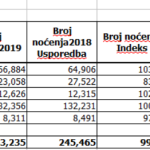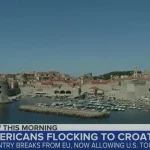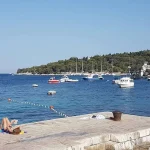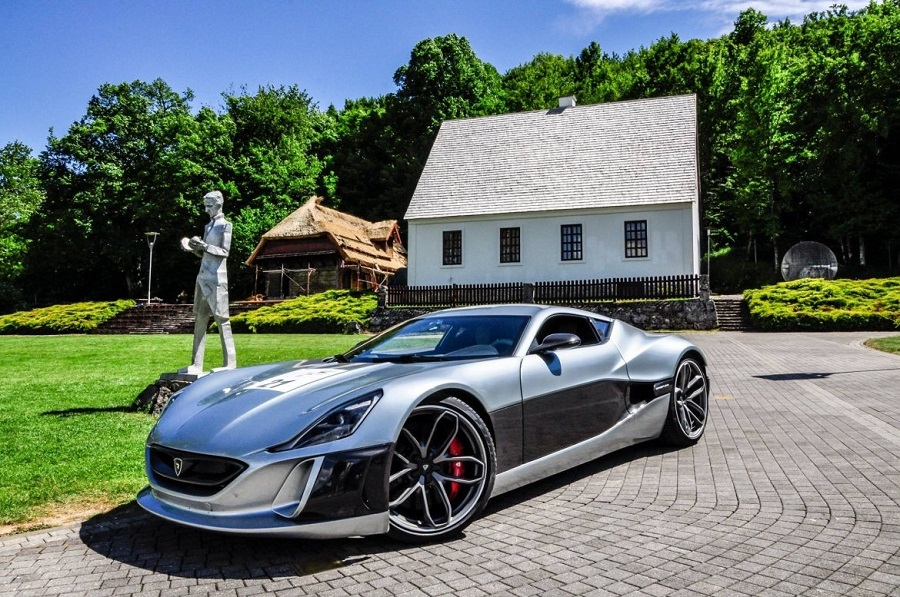
Two small but very significant things for Croatian tourism happened in one Facebook post just before Christmas.
The post was by arguably the most communicative senior member of the government on social media, State Secretary for Tourism, Tonci Glavina, who regularly updates his followers on good news regarding Croatian tourism and government activity, communication which is very welcome.
And Glavina’s status update of December 23 caught my attention in particular, for two reasons, and opens a small window of opportunity for progressing tourism strategy in Croatia:
The post was significant firstly as this was the first time (to my knowledge) that a senior government official had given a concrete statement on the reality of the Croatian digital nomad visa since Prime Minister Plenkovic tweeted his intention in late August to act on a LinkedIn open letter from Dutch entrepreneur Jan de Jong asking for the introduction of a digital nomad visa for Croatia. As regular readers of TCN will know, digital nomad tourism is something we have been advocating for more than 18 months now, as well as reporting on progress on the visa every step of the way, from the law changes in the Aliens Act and the tax code. You can follow the TCN digital nomad coverage past, present and future here. Having a senior government official confirm what we have been reporting for months is most welcome, as is the additional news that Glavina brought that there will soon be a big global promotion by the Croatian National Tourist Board to attract digital nomads to Croatia.
The second thing that was significant in Glavina’s post was his acknowledgment that this was an initiative from the private sector, namely the efforts of de Jong and those supporting his initiative. I have long advocated for the private sector to play a more active role in shaping Croatia’s tourism, simply because the private tourism sector understands tourism so much better than those running Croatian tourism (in my opinion), and in many cases they manage to succeed in spite of official tourism strategies, rather than because of them. So to see the Croatian tourism chiefs not only recognise a private sector initiative but to make it a key theme for 2021 promotion is a very encouraging development indeed. And one I hope will be a precedent for future development.
National tourist board director was also ebullient about the prospects of digital nomad tourism and was quoted in Vecernji List, timeline December 23, 2020:
We plan various activities to position our country as an attractive destination for digital nomads. The focus of marketing campaigns will be on the fact that Croatia can guarantee a safe and quality stay for digital nomads. We will emphasize the excellent transport connections and the geographical position of an EU country in which many speak English and which has an excellent infrastructure and quality of offer. In the promotion, we will focus on the fact that our life is accessible according to European standards, that we have good health care with well-known benefits such as a favorable climate, beautiful nature and rich cultural and historical heritage. At the beginning of 2021, an online campaign is planned in Great Britain, the USA and Australia, and we will soon start teaser activities, ie posts with initial information about the legislative changes on social networks Facebook, Twitter and LinkedIn – says the director of the Croatian Tourist Board Kristjan Stanicic.
This is all wonderful (and I mean that sincerely), but I have a question which is important if we are to develop this concept of public-private cooperation:
If de Jong had not posted his online appeal to Plenkovic, and if there had been no private sector initiative regarding the digital nomad visa, would our Croatian tourism chiefs even be talking about digital nomads as a tourism strategy?
A few weeks before de Jong posted his LinkedIn request, I request a meeting with the national tourist board to present three new initiatives for Croatian tourism. The three ideas were a concept to brand Trogir the first digital nomad town in Croatia, a new sporting event to celebrate Dalmatia’s unique sporting heritage and tradition with the Olympics of Traditional Dalmatian Games, and a concept for developing religious tourism based on the only certified miracle in Croatia, the Eucharistic Miracle of Ludbreg.
I left the meeting empty-handed but with plenty to think about. Funding rules had changed and I was advised to approach regional tourist boards on the financial side. And while I was more than a little surprised that one of the senior tourist board members couldn’t name Croatia’s only miracle, it was the reaction to the digital nomad project that stayed with me. While my Trogir idea was apparently good, I was advised to check on taxation rules for nomads planning to work in Croatia. With the situation as it was, it was not something that they could officially promote.
And that, I believe, is how the situation would be today without de Jong’s initiative and all that followed.
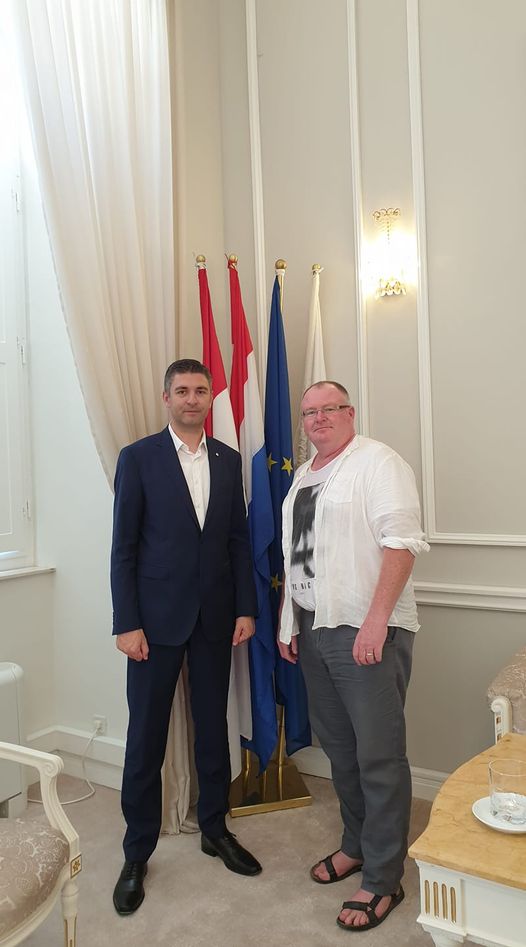
Private initiatives to promote digital nomad tourism continued, and there were more receptive ears. None more so than Dubrovnik, who not only embraced the concept, but acted on it very quickly. After a very cordial meeting with Mayor of Dubrovnik, Mato Frankovic, in July, wheels were set in motion to prepare for an international digital nomad contest to work with the city on improving its digital nomad offering and branding.
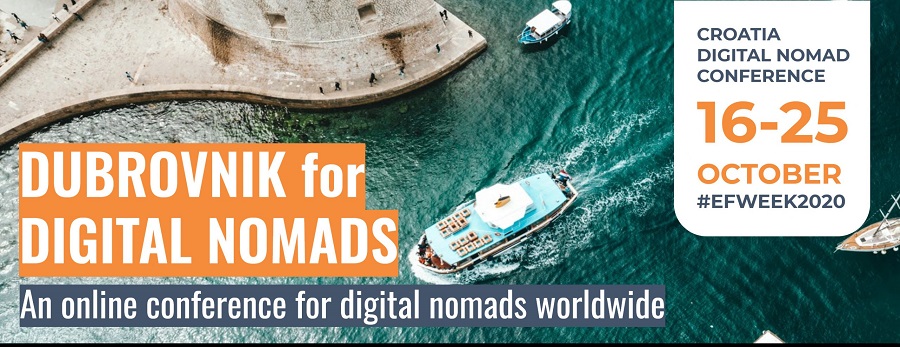
Corona budget issues have delayed that project until April/May 2021, but Tanja Polegubic from Saltwater Nomads suggested Dubrovnik start the discussion by organising Croatia’s first-ever digital nomad conference, Digital Nomads for Dubrovnik, in October, in partnership with the Dubrovnik Tourist Board, City of Dubrovnik and TCN.
News of the imminent visa and the Dubrovnik conference caused quite a buzz internationally, and there were many articles in the international media about Croatia as a new hot spot for remote workers, with the Dubrovnik for Digital Nomads conference even getting a mention in the Washington Post.
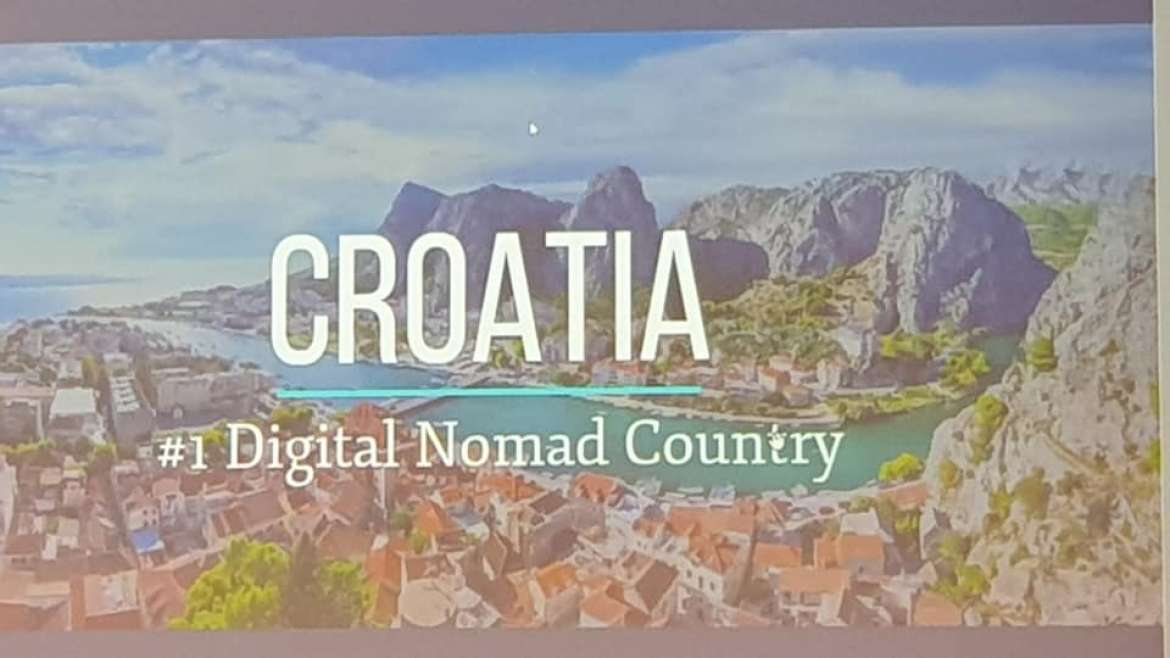
And there was plenty of more niche promotion within the digital nomad community, with TravelOffPath co-founder Kashlee Kucheran, a website and community dedicated to global travel information for remote workers, extolling the virtues of Croatia as a destination for digital nomads – you can learn more in this TCN interview with Kashlee.
Zagreb has also been very receptive to the digital nomad opportunity. Sadly, we had to cancel plans for a Digital Nomad Bootcamp as part of Advent in Zagreb due to the pandemic, but we will be announcing a great initiative in partnership with Zagreb in the new year.
And yet, despite all the activity and December 23 announcement and upbeat quote from Director Stanicic, not a single word about this new tourist sector on the national tourist board site. This is what greets you when you search the national tourist board website for information about digital nomads (see above).
The main point of this article is to show how important the private sector is for tourism and what a positive effect it could – and should – have, and so it is worth taking a closer look at the origins of this initiative, as well as looking at others which may exist. As Jan de Jong has explained, he is also quite new to the concept of digital nomad tourism. Back in May, he was due to speak at a tourism conference and asked me for some advice about tourism initiatives. I sent him a few articles to read including two about digital nomad tourism, both written in mid-2019, a full 18 months before Director Stanicic’s enthusiastic embracing of his new initiative.
How Croatia is Becoming Increasingly Attractive for the Digital Nomad Lifestyle (June 19, 2019)
Branding Croatia for the Future: 5 Gifts and Trends to Focus On (June 9, 2019)
If these articles planted a seed in de Jong’s mind regarding digital nomad tourism, who in turn planted a seed in the Prime Minister’s mind with his LinkedIn post, who in turn planted more seeds for Croatian tourism chiefs, which results in a visa and strategy for digital nomad tourism for Croatia, then I will be very happy. There have been lots of people involved from the private sector on the way as I explored in Croatia’s Digital Nomad Visa Story: The Expat Contribution.
The big question is that if this approach of private initiative which is helped along the way with a collection of different skillsets and influences can be embraced by the Croatian tourism chiefs, are there any other such ideas which could yield similar fruit? And the answer is an emphatic YES! Here are just 4, and let’s go back to that 2019 article, Branding Croatia for the Future: 5 Gifts and Trends to Focus On.
1. Medical Tourism
One sector which is a real growth opportunity for Croatian where the private sector is trailblazing is medical tourism. It is an area I have written a lot about in the last three years, not only about Croatia, but also internationally, and it was a real honour to be named International Medical Travel Journalist of the Year in Kuala Lumpur recently by one of the star performers of the global medical tourism industry – the Malaysia Healthcare Travel Council.
I have attended several conferences, both national and international, and interviewed many of the bigger names in the medical tourism industry over the last few years. I have been constantly struck by how big the potential is for Croatia, whose reputation within the industry is very high, so at odds with the delivery of effective official promotion. At the same time, the private medical tourism companies are achieving great visibility and partnerships in order to develop not only their only clinics and hospitals, but also the Croatian industry as a whole. It is quite telling that the brand of the Kvarner Health Cluster has a bigger brand within the industry than Croatia as a national brand, for example.
–
Unlike digital nomad tourism, which as we have seen has yet to get a mention on the official website despite the apparently lofty plans for 2021, there have been sporadic – and particularly ineffective – efforts to officially promote medical tourism. The video above is a case in point – dating back to 2017. Some pretty drone shots of Croatia and some footage in some clinics, but with no coherent message, and with almost no engagement – 43 likes and zero comments despite over a million views suggests another paid campaign that failed to engage.
Fast forward two years and a shiny medical tourism conference called Health Spot Croatia.
All the big names were there in terms of sponsorship, and the list of speakers was no less impressive as an official show of strength.
No less than two ministers, the president of the Croatian Chamber of Economy and Mayor of Zagreb in the welcome speeches alone.
And the dividend from the conference once the lights went off, the initial column inches written? Very little. Indeed my understanding is that the health tourism department of the Ministry of Health was disbanded earlier this year.
Meanwhile, in the private sector, Croatia is excelling on the global stage, working with the biggest names in healthcare.
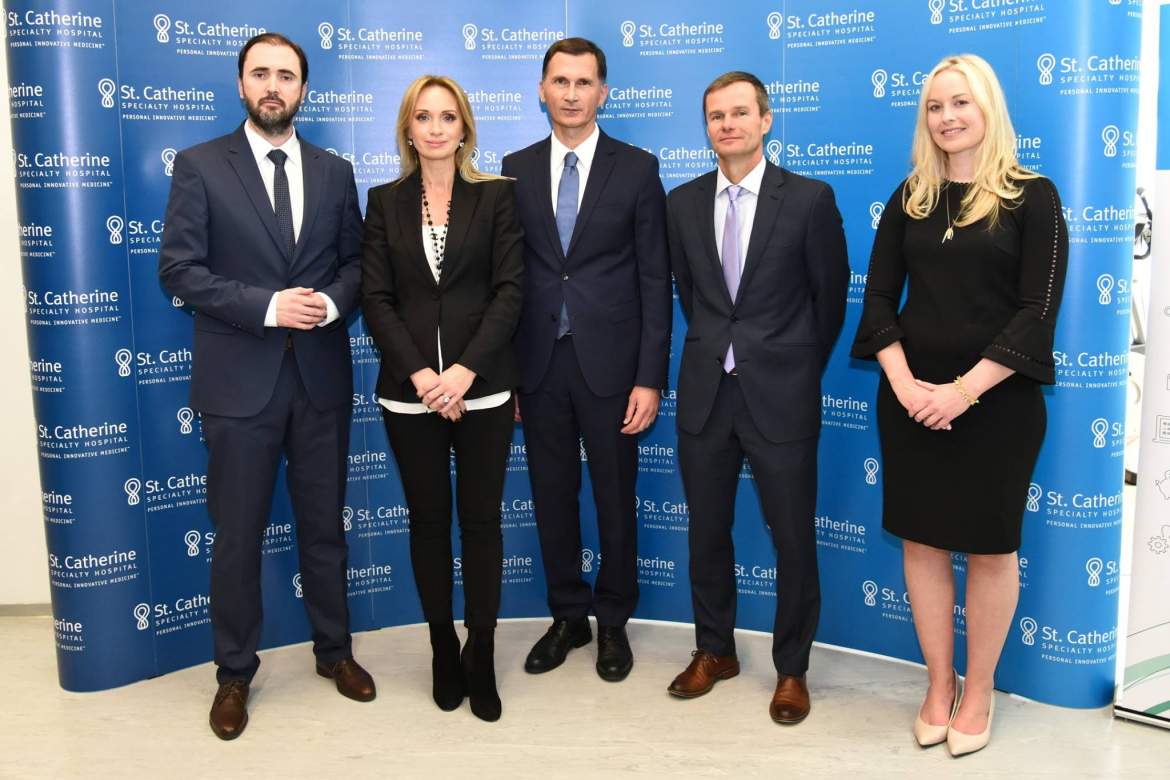
St. Catherine’s Specialty Hospital, a member of the Leading Hospitals of the World, became the first place in Europe to offer the RightMed OneOme pharmacogenetic test, developed in partnership with Mayo Clinic.
–
Cleveland Clinic has also been taking an interest in the Croatian medical tourism story after links were forged by Ognjen Bagatin of Bagatin Clinic on a visit to Cleveland. Cleveland Clinic CEO Tom Mihaljevic pledged his support for perhaps the most ambitious initiative to put Croatian medical tourism on the map – EPIC 2020.
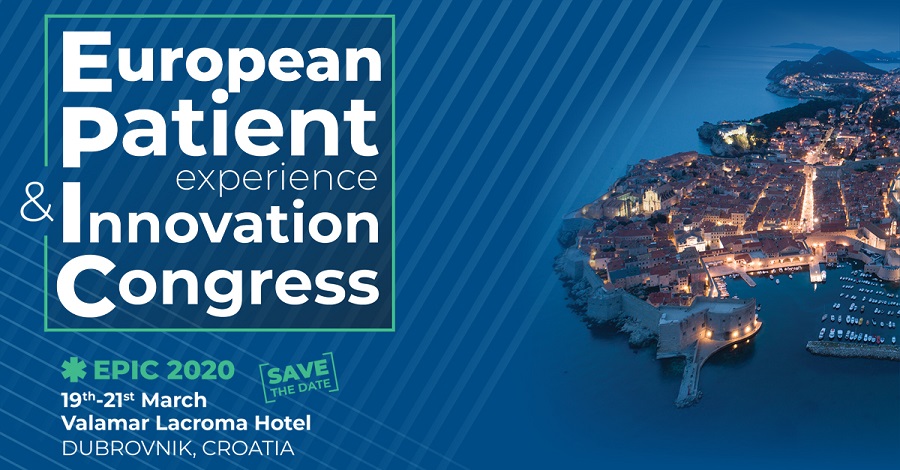
But for the pandemic, EPIC 2020 would have been Europe’s first European Patient Experience and Innovation Congress, organised by Bagatin Clinic in collaboration with Cleveland Clinic, with a world-class list of international speakers, including several from Mayo and Cleveland Clinics.
Bagatin Clinic has become synonymous with Croatian medical tourism excellence globally, thanks largely to the extraordinary efforts of Ognjen Bagatin, who has travelled the globe several times over to promote Croatia and its health tourism story. He has done more than perhaps anyone to develop this sector of Croatian tourism, as well as being an authoritative and inspirational speaker on the global level. It was a pleasure to witness him collect the award on behalf of Bagatin Clinic for Best International Cosmetic Surgery Clinic at the International Medical Travel Journal awards and conference in Berlin in 2019. IMTJ is the leading medical tourism conference in the world, attracting exhibitors from all over the world. While official promotional bodies were out in force from the biggest countries in the industry, including South Korea, Malaysia and Germany, the Croatian presence was limited to Bagatin and the Kvarner Health Cluster.
Unlike digital nomad tourism, which is just in its infancy, there is considerable experience and expertise in the private medical tourism sector in Croatia, as well as a vision and international credibility. If de Jong’s private initiative for digital nomads could be replicated for the medical tourism industry, the possibilities are enticing indeed.
2. Lessons from Portugal – retirees and the Golden Visa.
A little legislation change is what is required to bring in the digital nomad visa, thereby making Croatia more accessible to remote workers to come and live in Croatia and contribute their spending power to the Croatian economy.
And a little more legislation change in another area could also boost the State coffers. With its temperate climate and relaxed lifestyle, Croatia is an ideal destination for pensioners to spend at least some of their retirement time. The lower cost of living compared to Western countries also makes Croatia an attractive option.
Just as I have come across many digital nomads from outside the EU looking to spend more time in Croatia, so too people wanting to retire and spend time here.
And spend money. As Portugal has figured out, retirees looking to relocate to the sun are independently wealthy and not going to take away and local jobs. And they tend to have affluent friends and family who come to visit. The Portuguese Golden Visa programme has been a big success, something which can easily be emulated by Croatia – Lessons from Portugal: Taking Advantage of the Retirement Lifestyle Opportunity.
3. Wine – Home of Original Zin and 130 Other Indigenous Grape Treasures
You will not be in Croatia long before you hear about how great the wines are. And they truly are. Home of the original Zinfandel and 130 other indigenous grape varieties, Croatia also offers some very diverse wine regions and exceptional tasting experiences. With the popularity of gourmet tourism in France, Spain, Italy and Germany, the potential for Croatia to present its world-class food and wine offering is there. After all, didn’t the late, great Anthony Bourdain wax lyrical about Croatia’s “world-class food, world-class wine, world-class cheese” back in 2011.
And yet…
Where to go to find the information about the wine roads and wine tasting experiences?
Dalmatia may be the home of original Zinfandel (a FANTASTIC hook for the American market in particular), but there is no Dalmatian wine road. In fact, trying to find information about any wine roads is rather a challenge. A few years ago, I asked the national tourist board to send me a list of wine roads for Croatia. They were very helpful saying that they did not have that information but would contact the county tourist boards individually and get the information of wine roads by county. They did send information on all but one county, in varying degrees of quality, but mostly it was just a list of names. Which was better than the help from the Ministry of Tourism, who insisted that there was a map of the Biokovo Wine Road, a wine road which no wine professional in Croatia I have spoken to knows ever exists.
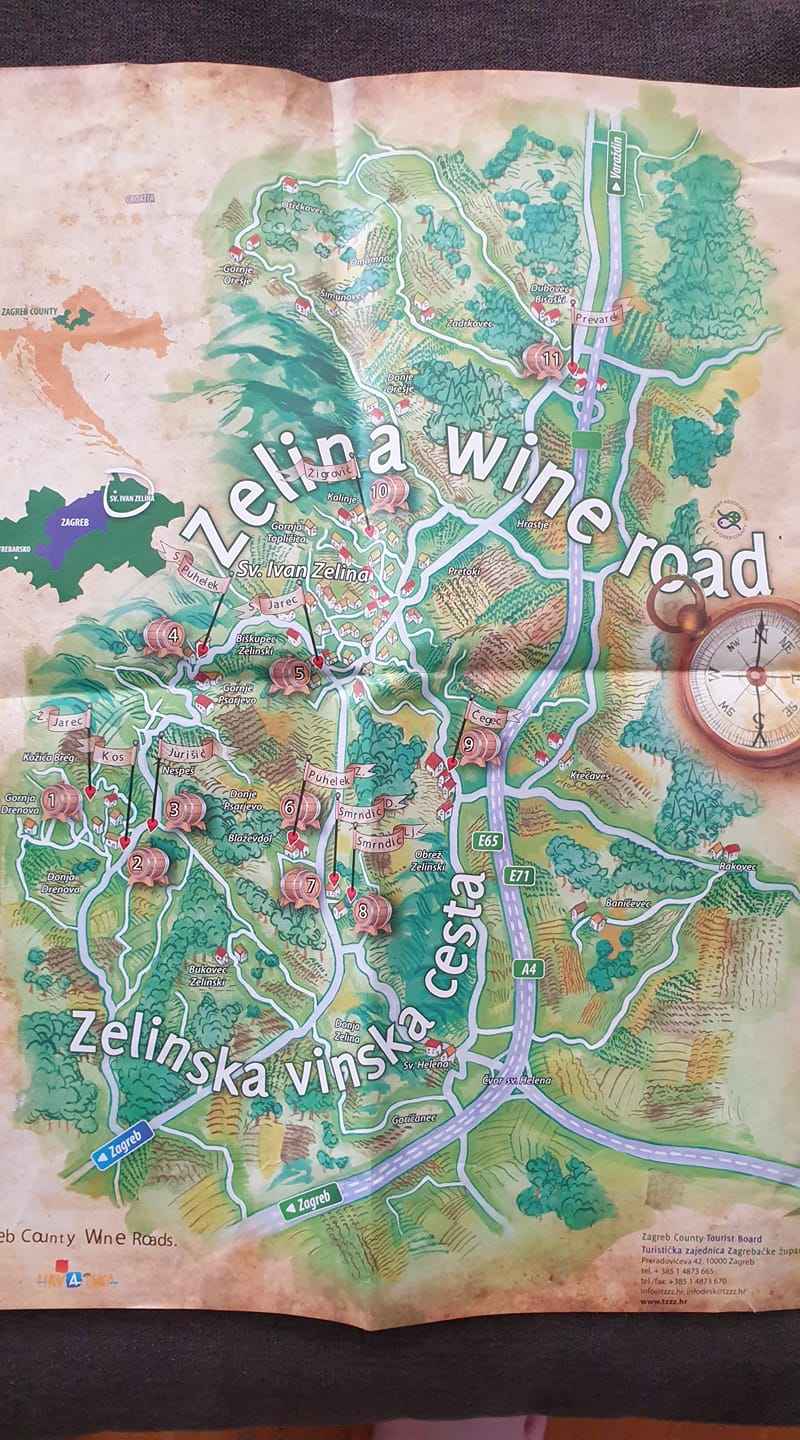
That is not to say that it is all bad. I was much cheered on a recent visit to the Zagreb County Tourist Board to come across this very useful map for the wine lover. On the one side, a map of the 11 wineries on the Zelina wine road, and on the other all the contact details, opening hours and tasting experiences on offer, details which you can also find on the official website.
How hard would it be to do this on a national level, and to put up some signs for wine roads on a national level? To actually make finding information about wine roads and wineries user-friendly? There are signed wine roads at a local (and sometimes regional) level, but it Croatia wants to be taken seriously as a wine destination, it should start taking its wine promotion seriously. Need some help? Lessons from Macedonia: How Croatia Can Learn How to Market Wine. Interestingly, Macedonia’s biggest export market is… Croatia.
4. Maximising the Tesla (and Rimac) brand
Was Nikola Tesla a Serb or a Croat? If you are looking for the answer in how he is promoted in both countries today, then there is no contest. Despite visiting Belgrade only once, the international airport bears his name, and Serbia celebrates Science Day each year on his birthday, July 10.
By contrast, the birthplace of Tesla, the village of Smiljan in modern-day Croatia near Gospic, is a very humble affair, and a great opportunity for Croatia which is currently very underutilised. As I wrote in my 2019 Branding Croatia article:
From Tesla to Rimac – the home of clean energy and innovation
Nikola Tesla was a genius, whose inventions transformed the way we live. He was also an ethnic Serb who was born and grew up in the village of Smiljan, in which is today modern Croatia. Tesla only visited Serbia once, and yet Belgrade named its international airport after him. Meanwhile in Croatia…
Smiljan is a lovely spot, with plenty of space. As Telsa’s birthplace, it is also the symbolic home of the Tesla revolution. So let’s give people a product to match that potential, an Old Trafford Theatre of Dreams for the e-mobility generation. I have been fortunate to have taken part in the Nikola Tesla EV Rally a few times. One of the undoubted highlights of the trip for these Tesla car converts is a visit to Smiljan, a chance to pay homage to Nikola Tesla and where it all began.
Looking forward, as branding Croatia should be doing, something like 75% of tourists to Croatia arrive by car. By 2030, there will be 21 million new electric vehicles on Europe’s roads. From a tourism and economic viewpoint, it would make sense for Croatia to be at the forefront of the e-revolution, but with a gift of the Tesla birthplace, a brand to build on and develop for sure. Especially when Croatia has a modern-day Tesla in the shape of Mate Rimac, whose electric supercars and technology is taking the world by storm.
The energy this year to push the Croatian digital nomad story forward has been inspiring, as well as encouraging. If Croatian bureaucracy really can work that fast, and if the Croatian tourism chiefs really can react to private initiatives such as de Jong’s visa proposal, then it can do the same in other sectors, for the ultimate benefit of tourists, tourism providers, and the Croatian economy. So with the digital nomad box almost ticked, can we now turn our attention to legislation for foreign retirees, empower the medical tourism industry to realise its vision, coordinate a unified and comprehensive introduction to Croatia’s wine potential, or raise the level of Nikola Tesla promotion to the level the great man deserves?
As with the nomad visa, none of these is overly taxing, and the benefits for Croatia will be considerable.

